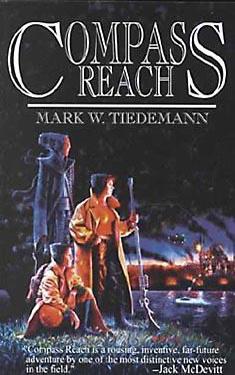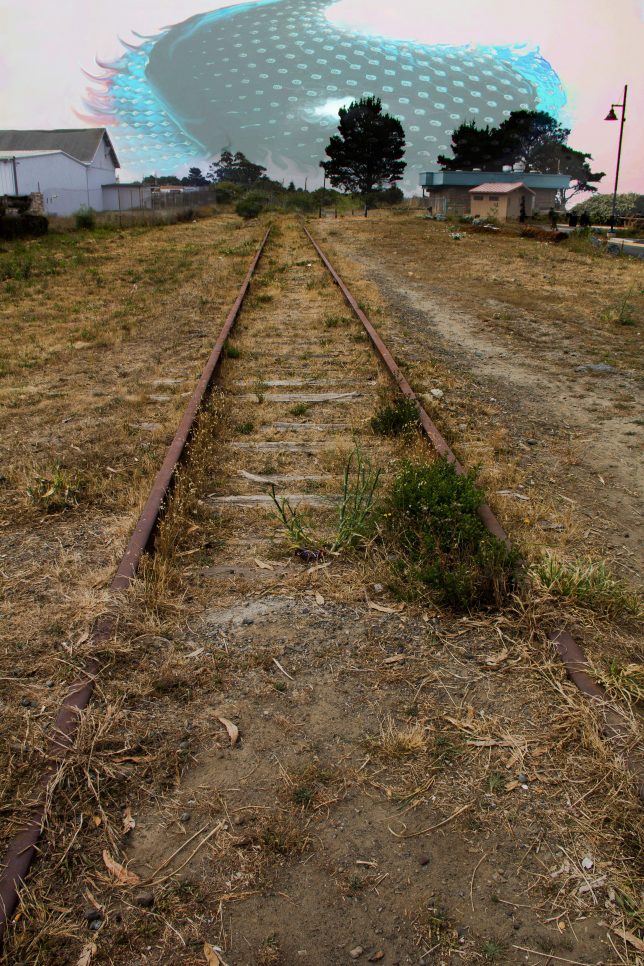I sometimes marvel at my own inability to apprehend the cluelessness of my fellow beings. Some positions come out of the zeitgeist that leave me gobsmacked at the utter feckless density of people.
And then I recover and reconsider and realize, no, I’ve been hearing this kind of nonsense my entire life. One just never expects it from those one considers allies. It calls into question all assumptions, then, about what one considers an ally, and the realization (which has always been there, really) clarifies that it’s all surface.
There are fans of Star Trek who have apparently only ever cared about the ship, the uniforms, the phasers, and the astronomy (such as it is). When it comes to the message? Not so much. They groove on the coolness of the æsthetics and manage never to quite grasp the underlying themes. Their favorite episodes, no doubt, are those with the maximum number of phaser blasts. Stand-offs between the Federation and the Klingons/Romulans/Cardasians/etc are held up as the whole point of the show. Somehow, they have reduced the entirety of the universe to a military SF genre.*
Fair enough. There has been a great deal of that. It’s exciting, it pulls in eyeballs, it offers a kind of astropolitical board game view of the future interstellar gestalt. But after 50-plus years of an expanding milieu, I can’t say that those have been the episodes or arcs that have stayed with me or had the deepest impact or resonance with me.
I do not see those as the soul of Trek.
They’re aberrations. They are presented as the thing to be solved so they stop happening. And the thing being defended is the vast, peaceful diversity of a polity steeped in nurturing the best of what is possible. The motto that started the whole thing and continues to be the basis for each new series—seek out new life and new civilizations—is the heart and soul of it, but that seeking and finding comes with a commitment to learn, grow, adapt, and remake ourselves in the face of the new.
In other words, it’s not about conquest, it’s about mutuality.
To be perfectly clear, Star Trek has been “woke” since the very beginning, when that multi-ethnic bridge crew appeared in living rooms all across a white-dominated United States. Equality and diversity have been the underlying given throughout the whole franchise. Poorly handled at times, muffled at others, occasionally embarrassingly unaware, but all through it.
Here’s the thing about aliens in science fiction. They have always, for the most part, been stand-ins for humans who are different. They have always been there as something against which to react and learn about differences. They have always been there as challenges to assumptions.
The conflicts? In the best and most memorable examples, breakdowns in communications, understanding, or intolerance unmitigated.
Oh, sure, there has been a great deal of war-fueled SF born out of recasting our own conflicts. More than a few based on WWII, the Cold War, Vietnam. But even among the best of these, there is the message, to be read if willing, that the whole thing is a mindless, stupid mistake that brings all parties down in the end. “Winning” is a lesson in irony.
The lesser material revels in the glory of conflict and the “honor” of coming out on top.
I can see no instance of Star Trek in which this has ever been a laudable scenario. Even Kirk, cowboy that he was, almost always did everything he could to avoid conflict. His worst moments were those in which he gave in to the easy solutions and wore the mantle of revenge.
For the rest of it, everywhere you looked the show extolled the virtues of cooperation, of dignity, of equality, of diversity. It was just there.
So the complainers, those who have somehow been taken by surprise that there is a core of empathy and acceptance and tolerance and an examination of difference and an exaltation of plurality and discussions of what it means to live in a society where everyone by right is accorded the agency of self-worth and the benefits of choice and that, yes, these are the bases of political discourse, have frankly not been paying attention.
Maybe their filters have been set too high and now that we have a few recent examples where the continual, ever-present message has been a bit more foregrounded than in past examples, they are shocked that what they saw as one thing, is actually much, much more. Star Trek has not become Woke (and I find it fascinating that a term intended to signify a state of awareness, of people paying attention, of recognizing what is around you has been repurposed as a pejorative by those who clearly would rather not be challenged by any of that, much the same as all past slurs of the anti-intellectual, the empathetically-stunted, the self-satisfied, the privileged ignorant) it has always been.
Just what do you think all the controversy over Kirk and Uhura kissing was about if not a bunch of unself-conscious racists reacting against an example of what we term miscegenation? Maybe go look up Loving v Virginia for a bit of then-current background. This was Trek saying “this should not be an issue!” But it was and it offended and had the term been current then, people would have been calling the show Woke.
Certain people have a deep investment in not seeing what they find challenging to attitudes with which they are comfortable. In this case, I’m quite pleased they are being unsettled. Squirm.
What I challenge here is the a-historical nonsense being touted that SF has never been political. SF by suggesting the future will be different is fundamentally political. SF by suggesting that change is essential is  fundamentally political. SF by suggesting that we still do not know what Being Human means is fundamentally political.
And SF that actively seeks to deny all this and puts forth a philosophy that such matters are settled and all that remains is for us to assert an end to self-discovery…well, that kind of SF comes in two forms: dystopia and crap. (The dystopic form is aware that this is merely an assertion of power and is basically wrong. The other form is philosophical onanism and is essentially anti-science fiction.)
I find it sad that these things need to be said. I grew up with Star Trek and from the very beginning it was the most positive piece of science fiction on television. It offered a future free of things like poverty, the KKK, anti-intellectualism, tribalism. Those are the aspects of it that sank in, made it a narrative that could not be denied, and has led to what it became today. Not the guns, not the wars—the aspirations of a future worth living in, for everyone.
If that’s being Woke, I’ll take it. Better than staggering through life asleep and destructive.
_____________________________________________________
*”But I don’t wanna see stuff about LGBTQ+ or compromise or learning about alien life forms so I can live with them or about empathy or how flawed humans are or any of that gooey touchy-feelie let’s-all-love-each-other shit!” Then all I can ask is, “Why in the Verse are you reading or watching science fiction in the first place? Just for the SFX? How sad.”



